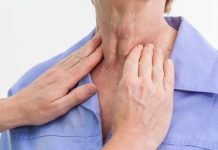Sarcoidosis is an inflammatory disease that mainly starts in your lungs or lymph nodes.
If it becomes persistent, then it becomes more potent to affect any organ in your body including skin, nervous system, eyes, heart and also liver.
This inflammation mainly involves production of tiny lumps of cells in different organs of your body.
These lumps are mainly known as granulomas, because they look more like grains of sand or sugar. These granules like lumps are very small and can be visible only with a microscope.
The symptoms of sarcoidosis mainly depend on the organs that are affected by the inflammation. Some of you can develop the symptoms in specific part of your body like shortness of breath due to lung problems and others can experience vague symptoms. In certain cases, it doesn’t show any signs of the disease.
Early diagnosis can be helpful to prevent complications involved in sarcoidosis!
Sarcoidosis mainly affects your lungs and sometimes you will not feel the symptoms of the disease, until the disease is recognized in your regular chest x-ray. If the inflammation reaches the advanced stage, then it can end up with a cough, which persists for a long time and you can also experience shortness of breath.
Other manifestations which can help you to recognize the disease include:
- Fever
- Sudden loss of body weight
- Red watery eyes
- If you have this lung disease, then you can notice small red bumps on your skin, especially in certain areas like face, arms or buttocks.
- You can suffer with a vague feeling of discomfort or dizziness and even experience fatigue more frequently.
- Arthritis in particular parts like ankles, hands, elbows and also in wrist, is one of the problems which are most commonly associated with the bumps on the skin of affected individuals.
These are some of the common symptoms which are mostly found in a person with sarcoidosis. So, if you notice any of these abnormal health conditions in your body, immediately consult your doctor and take necessary precautionary steps in order to avoid the complication associated with the disease.
However, a regular health check up is very essential for a person, which helps in identifying these kinds of underlying and unidentified problems in your body.












